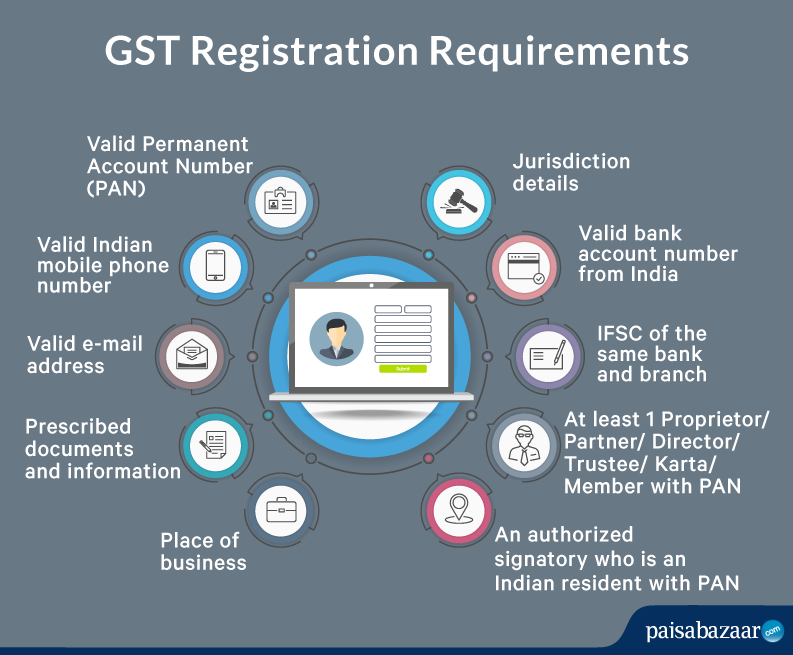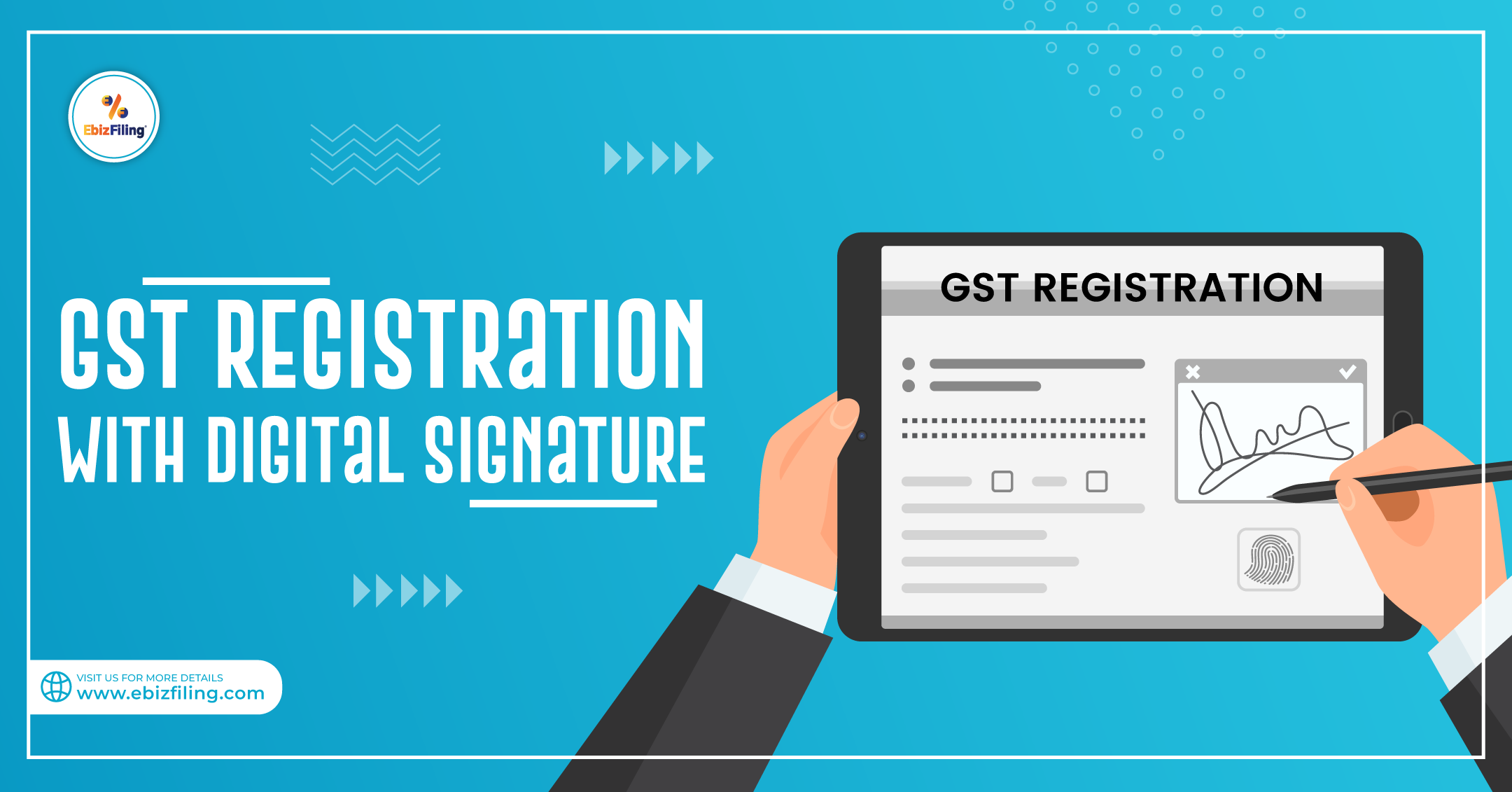Everything You Need to Know to Get Your GST Registration Done Today in Singapore
Everything You Need to Know to Get Your GST Registration Done Today in Singapore
Blog Article
Maximizing Your Service Possible With Proper GST Registration: Secret Methods and Ideal Practices
In the realm of business operations, the relevance of correct GST enrollment can not be overstated. It functions as a fundamental pillar that underpins the financial health and wellness and governing conformity of any kind of venture. By browsing the intricate landscape of Goods and Services Tax with proficient methods and adherence to ideal techniques, organizations can open a world of possibilities to increase and prosper. With a careful technique to enrollment types, record-keeping, and compliance, business can not only improve their processes but also gain an affordable side in the market. The key to truly maximizing the possible lies in the strategic usage of GST mechanisms such as input tax credit report. This vital element, combined with timely compliance with filing deadlines, can lead the means for continual development and success.
Understanding GST Basics
Exploring the basic concepts of Item and Provider Tax (GST) is vital for services intending to navigate the complicated landscape of contemporary tax systems. Under GST, services need to comprehend the idea of input tax credit, which allows them to assert credit for tax obligations paid on their inputs.
Furthermore, businesses must grasp the difference in between CGST (Main Product and Solutions Tax) and SGST (State Goods and Provider Tax Obligation) CGST is gathered by the central government on intra-state supplies, whereas SGST is imposed by the state federal government. Furthermore, IGST (Integrated Product and Services Tax) relates to inter-state purchases, making sure seamless tax credit scores throughout the supply chain. Comprehending these basic principles of GST is critical for companies to adhere to regulations, optimize tax obligation preparation, and boost their total monetary management approaches.
Picking the Right Registration Kind
Optimizing Business Conformity through Strategic GST Enrollment Selection is essential for businesses seeking to operate effectively within the GST framework (Get your GST registration done today in Singapore). Selecting the appropriate registration kind is an important choice that can affect numerous aspects of a service, including conformity demands, tax obligation, and functional adaptability
When selecting a GST registration kind, companies need to take into consideration elements such as yearly turn over, interstate purchases, and business structure. The two main enrollment types under GST are Routine and Make-up schemes. Regular registration appropriates for services with a yearly turn over exceeding the threshold limit, allowing them to collect tax obligations from consumers and case input tax obligation credit histories. On the other hand, the Structure plan is created for local business with a turnover listed below the defined restriction, supplying reduced tax obligation prices however with limitations on input tax credit rating claims.
Maintaining Accurate Records
Establishing thorough record-keeping methods is vital for companies to guarantee conformity with GST regulations and track economic deals accurately. Keeping precise records not just helps with seamless GST declaring however also helps in keeping track of cash circulation, evaluating organization performance, and planning for audits. To accomplish this, businesses need to apply a methodical approach to record-keeping by recording all transactions, including sales, acquisitions, expenses, and GST settlements. Making use of accounting software application can streamline this procedure, giving a digital system to record and organize economic data successfully.
Normal settlement of economic documents with financial institution declarations and GST returns is crucial to determine any type of mistakes or disparities promptly. Businesses need to also keep all appropriate files, such as invoices, receipts, and contracts, to validate their tape-recorded transactions. By maintaining a well-organized record-keeping system, businesses can not only adhere to GST regulations but additionally obtain beneficial understandings right into their monetary click to investigate health and wellness and make notified decisions to drive growth and profitability.
Leveraging Input Tax Obligation Debt
Using input tax obligation debt efficiently can significantly benefit companies by decreasing their tax responsibility and boosting capital monitoring. Input tax obligation credit report enables businesses to counter the tax they have actually paid on inputs versus the tax responsibility on outcomes. By leveraging input tax obligation debt, services can efficiently decrease the general tax obligation problem on their services or items, thus boosting their competition in the market.
One secret strategy to make the most of input tax obligation credit history is to ensure careful documentation and compliance with GST laws. Preserving exact records of all input taxes paid is crucial for declaring the credit rating immediately and accurately - Get your GST registration done today in Singapore. Companies need to frequently integrate their input tax credit report asserts with the purchases made to determine any kind of discrepancies and correct them immediately
An additional best practice is to keep an eye on adjustments in GST laws and policies to remain educated about eligible input tax credit report groups and rates. Engaging with tax experts or participating in routine training sessions can assist businesses stay updated on the most up to date growths and maximize their input tax obligation debt claims. Ultimately, by efficiently leveraging input tax credit report, organizations can boost their economic performance and competition in the market.

Following Filing Due Dates
Adherence to declaring target dates is a critical element of preserving conformity with GST policies for services. Prompt entry of GST returns makes sure that organizations fulfill their tax obligation commitments and avoid penalties or penalties for late declaring - Get your GST registration done today in Singapore. It is essential for businesses to track the various GST filing deadlines based upon their enrollment type, whether regular monthly, quarterly, or yearly, to stop any type of lapses in compliance
To abide by declaring target dates successfully, companies ought to establish robust inner procedures for record-keeping and reconciliation of monetary data. Making use of audit software program or involving expert accountants can streamline the process and aid make sure precise and timely submissions. Additionally, establishing up tips or notifies for upcoming filing deadlines can aid services stay organized and avoid final rushes that might cause errors.
Failing to satisfy GST filing target advice dates can cause consequences such as interest charges on superior tax quantities or perhaps lawsuit in extreme instances. By focusing on conformity with filing deadlines, organizations can demonstrate excellent administration practices and preserve a favorable relationship with tax authorities, promoting trust fund and reputation within business environment.

Conclusion
In verdict, taking full advantage of company possibility with proper GST enrollment involves recognizing the fundamentals of GST, selecting the ideal registration kind, preserving specific records, leveraging input tax obligation credit history, and meeting declaring deadlines. By complying with these key approaches and best techniques, businesses can make certain compliance with GST guidelines and optimize their monetary performance.
Under GST, find more info businesses need to comprehend the principle of input tax credit report, which permits them to claim credit score for tax obligations paid on their inputs. Regular registration is appropriate for services with a yearly turn over surpassing the threshold restriction, permitting them to accumulate taxes from customers and claim input tax debts. Input tax obligation credit scores enables services to balance out the tax obligation they have paid on inputs against the tax responsibility on outcomes. By leveraging input tax credit scores, organizations can efficiently reduce the total tax burden on their products or solutions, thus enhancing their competitiveness in the market.
Engaging with tax professionals or attending normal training sessions can aid services stay updated on the latest developments and maximize their input tax obligation debt claims.
Report this page